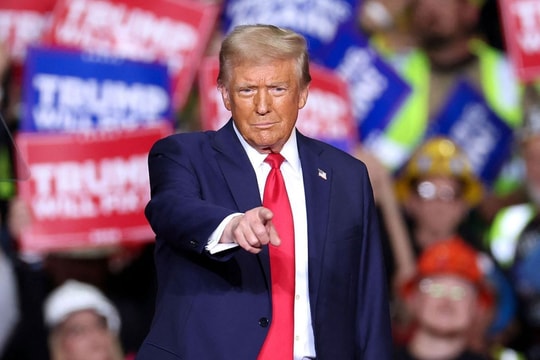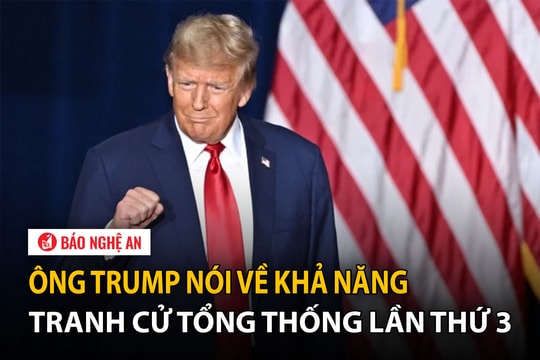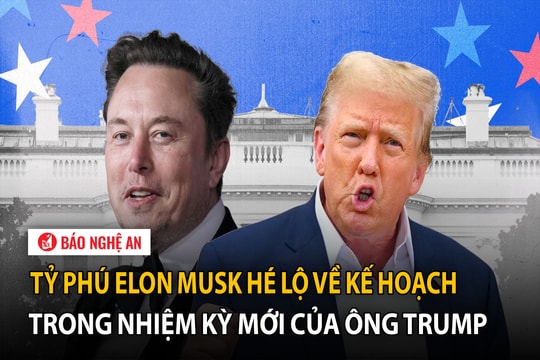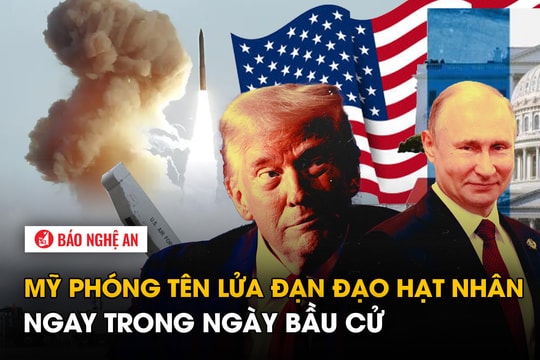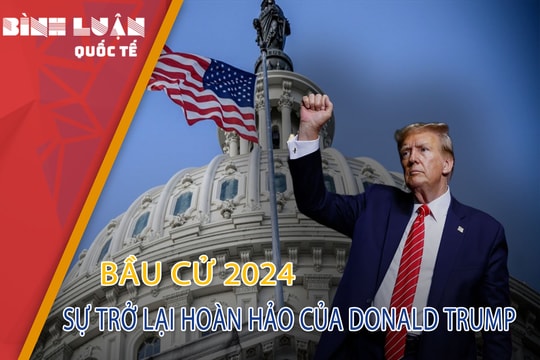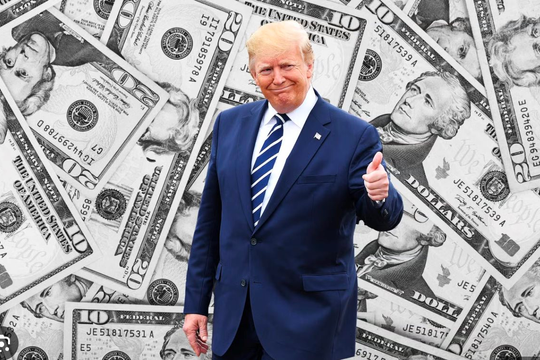Why is Russia so interested in the 2016 US presidential election?
Rarely has a US presidential election attracted as much attention from the Russian public as this year's election. Observers believe the underlying reason is that the Russia-US relationship has never been as tense as it is now since the Cold War and Moscow is watching the changes in Washington.
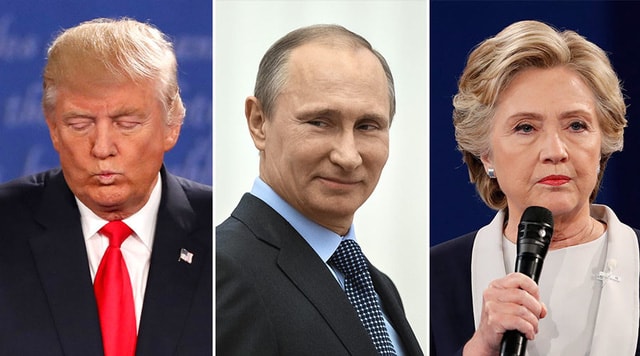 |
| Russian President Vladimir Putin (center) and two US presidential candidates Donald Trump and Hillary Clinton (Photo: Sputnik/Reuters) |
From “reboot” to “irretrievable”…
Shortly after entering the White House in 2008, President Barack Obama caused a stir around the world by pressing the “reset” button on relations with Russia on March 6, 2009, considering it one of the priorities in his foreign policy. The relationship between the two countries was smooth at that time, with images of heads of state and top officials shaking hands and talking to each other.
But not long after Mr. Obama won his second term, from 2013 until now, Moscow-Washington tensions increased sharply.
Why is this so? It is because of different views on world order; different priorities towards Eastern Europe, the Middle East and some global issues such as nuclear non-proliferation; because this relationship is constantly disrupted by disagreements on many issues.
In 2014, Russia annexed Crimea and supported independence-seeking rebels in eastern Ukraine, sparking a new confrontation between the US and Russia. Washington and its European allies immediately imposed sanctions on Russia and increased support for its military forces in Europe. Oil prices began to fall, and the Russian economy, heavily dependent on oil, began to falter.
After the Ukraine crisis, tensions escalated with a series of incidents: the 2014 downing of a Malaysia Airlines passenger plane in eastern Ukraine near the Russian border (a Dutch-led investigation said the missile that shot it down was flying over an area controlled by pro-independence rebels); Russian bombers invading Western airspace; NATO's military buildup in Eastern Europe, including the deployment of a missile defense shield; and now the deterioration of US-Russia relations again over the Syrian conflict.
The main strategic contested area between the US and Russia is Europe and this has a significant impact on the Middle East, including the hot spot of Syria.
Syria has long been aligned with Russia. Russia has supported President Bashar al-Assad since the start of the uprising against him in 2011. In 2013, the US and Russia agreed on a plan to eliminate Syria's chemical weapons stockpile, but the US failed to stop Russia from continuing to aid President Assad's government. In 2015, Russia began a military intervention in Syria to support the Assad government, while the US called for his departure and supported some opposition rebel groups.
The US believes that after its confrontational attitude towards the US in Syria, Russia is pursuing other goals: NATO withdrawal, dividing Europe, and re-establishing the former Soviet Union's sphere of influence.
The peak of tension in Russia-US relations was on October 3, which Western press such as pageSlateIt is believed that this relationship, which has been deteriorating for many years, has gone from bad to beyond repair.
The US announced that it would suspend negotiations with Russia to establish a ceasefire in Syria. And in retaliation, President Putin immediately announced the suspension of the plutonium disposal treaty with the US, which the two sides reached six years ago.
Note that since the late Cold War, the United States and Russia have signed a series of agreements to reduce their nuclear arsenals. These agreements are still maintained to this day, despite the strained relations between the two countries under President Putin.
Level of interest in the US election
In the US, during the 2012 presidential election, the debates between candidates Mitt Romney and Obama, the Russia issue was only mentioned in passing.
This year, Russia has become the focus of attention to such an extent thattDuring the second debate on October 9, Clinton singled out “the Kremlin, President Vladimir Putin and the Russian government,” as directing the hacking in an attempt to influence the US election. “The United States has never in its history been in a situation where a foreign adversary has tried to influence the outcome of an election,” she said.
Two days earlier, the US government for the first time formally accused Russia of carrying out cyber attacks against Democratic Party agencies. Russian Foreign Minister Sergei Lavrov countered that the US was increasing hostility between the two countries.
What is public opinion in Russia about the two American candidates?
Interestingly, the majority of Russians support Mr. Trump, perhaps because he has expressed his willingness to negotiate with Russian President Vladimir Putin and opposes American expansionism. But they generally do not expect that if elected, Mr. Trump will be a "pro-Russian president" and thus change American policy.
As for Mrs. Clinton, who served as Secretary of State from 2009 to 2013 in the Obama administration, the Russians believe that if she becomes the first female president of the United States, she will continue the path of her predecessor. This means that the United States will continue to confront Russia in the Middle East and will try to tighten Atlantic solidarity - which will negatively affect Russia-Europe relations.
What is the attitude of Russian President Vladimir Putin?
PageCNNThe US published a long analytical article saying that "Mr. Putin is afraid that Mrs. Clinton will win the election, for strategic reasons, as well as personal reasons."
The newspaper cited personal reasons as the reason that in 2011, when Mr. Putin paved the way for his return to the presidency for a third term, there were huge protests in Russia. Mrs. Clinton, then the US Secretary of State, publicly sided with the protesters.
For strategic reasons, the first example is that in recent years, Mr. Putin has initiated an increasingly tough foreign policy toward the United States, NATO, and the European Union. Despite its economic difficulties, Russia has focused on its military strength to assert its role as a major player on the international stage. Meanwhile, Mrs. Clinton has shown a challenge to Mr. Putin's strategy.
According to analysts of the newspaperNew York Times, the way the two candidates handle the Russia issue, if they become president, will be very different. And the newspaperFinancial TimesAccording to analyst Danielle Pletka of the American Institute, no candidate has shown a coherent and decisive policy on the Russia issue, so it is very likely that after November 8, President Putin has no reason not to maintain his policy in the current direction.
According to Dan Tri
| RELATED NEWS |
|---|

